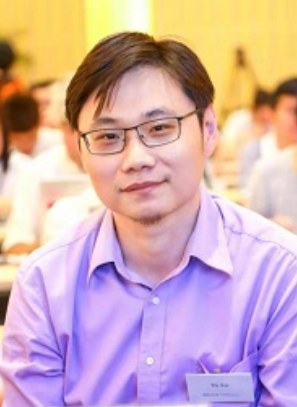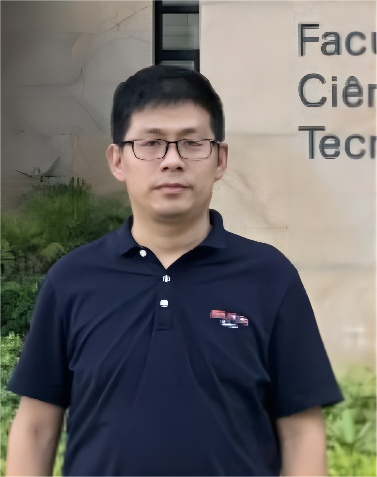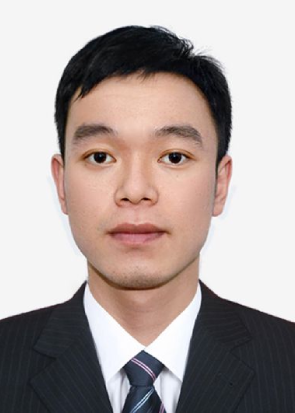As a significant breakthrough in the realm of generative artificial intelligence, large language models (LLMs) are increasingly permeating educational landscapes and revolutionizing teaching and learning. LLMs possess robust semantic comprehension, text generation and image generation capabilities that surpass traditional natural language processing methods. The application based on LLMs not only provides students with abundant learning resources but also offers diverse learning scaffolds to guide them in problem-solving. Additionally, LLMs can be utilized for automated teaching diagnosis, mitigating teachers' workload while enabling them to grasp learning situations efficiently, adjust teaching strategies, and devise more effective teaching evaluation methods.
Currently, a wide range of LLMs-based applications is emerging, including language translation, oral training, essay correction, programming tutoring, automatic problem-solving, automatic problem-solving, image generation. Nevertheless, the technology of LLMs has not yet matured, and some limitations and errors may occur, which adds barriers to the ground application of LLMs in education. Meanwhile, students' over-reliance on such tools may also lead to negative impacts. In addition, there is still a lack of evidence on how to properly and effectively utilize various types of assistants based on LLMs, and whether such tools can truly enhance learning. Therefore, further empirical research is urgently needed to address these issues.
The workshop aims to provide a platform for academic exchanges and discussions, where participants can share relevant research results, teaching practices, and innovative cases, and jointly explore the application of LLMs (including multimodal LLMs) in teaching practice and research. By exchanging experiences and ideas, the workshop aims to promote in-depth research and sharing of practical experiences in this field among academics. This workshop mainly focuses on the following topics:
1. Design of prompts for teaching and learning scenarios;
2. Analysis of the interaction process between humans and LLMs;
3. Intelligent agents based on LLMs;
4. Application of LLMs in teaching design and teaching resource development;
5. Application of LLMs in personalized learning;
6. Application of LLMs in automatic evaluation and feedback generation;
7. Application of LLMs in educational data analysis and decision support;
8. Cooperative learning based on LLMs;
9. Game-based learning and educational Games based on LLMs.
Keywords of Papers and this Workshop: large language model; generative artificial intelligence; intelligent agent; personalized learning.
Languages: Chinese, English.
Workshop Chairman:

Bo Jiang (江波)
Associate Professor, East China Normal University
E-mail:bjiang@deit.ecnu.edu.cn
|
Final qualification: |
Ph.D., Zhejiang University. |
|
Current dutie(s): |
Associate Professor, Department of Educational Information Technology, East China Normal University; |
|
Associate Dean, School of Computer Science and Technology, East China Normal University; |
|
|
Vice President, Shanghai Institute of Intelligent Education. |
Bo Jiang received the Ph.D. degree in control science and engineering from Zhejiang University, Hangzhou, China, in 2014. He is currently an Associate Professor at the Department of Educational Information Technology, East China Normal University (ECNU), Shanghai, China. Before joining ECNU, he was an Associate Professor with the Department of Educational Information Technology, Zhejiang University of Technology, Hangzhou. His current research interests include learner modeling, learning analytics, and computer science education. He is currently served as Executive Committee member of the Asia-Pacific Society on Computers in Education (APSCE), and the Editorial Board member of IEEE Transactions on Learning Technologies and Research & Practice in Technology Enhanced Learning. He received the 2021 APSCE Early Career Research Award.
Workshop Co-Chairmans:

Yu Lu (卢宇)
Associate Professor, Beijing Normal University
E-mail:luyu@bnu.edu.cn
|
Ph.D., National University of Singapore. |
|
Associate Professor, Beijing Normal University; |
|
Supervisor of doctoral students; |
|
|
Director of artificial intelligence laboratory, Advanced Innovation Center for Future Education (AI-CFE) in Beijing; |
|
|
Director of ICT center, Sino-Finnish Joint Learning Innovation Institute (JoLii). |
Yu Lu received the Ph.D. from National University of Singapore in computer engineering. He is currently an Associate Professor with the School of Educational Technology, Faculty of Education, Beijing Normal University (BNU), where he also serves as the director of AI Lab at the advanced innovation center for future education (AICFE). He has published more than 80 academic papers in the prestigious journals and conferences (e.g., IJAIED, IEEE TKDE, IEEE TLT), and serves as the PC member or track chair for multiple international conferences (e.g., AIED, EDM, AAAI, IJCAI, ACL, EMNLP, GCCCE). Before joining BNU, he was a research scientist and principle investigator at the Institute for Infocomm Research (I2R), A*STAR, Singapore. His research interests mainly sit at the intersection field of artificial intelligence and education.

Yantao Wei (魏艳涛)
Associate Professor, Central China Normal University
E-mail:yantaowei@mail.ccnu.edu.cn
|
Ph.D., Huazhong University of Science and Technology. |
|
Deputy director, Hubei Research Center for Educational Informationization; |
|
Supervisor of doctoral students. |
Yantao Wei is an Associate Professor at the Faculty of Artificial Intelligence in Education, Central China Normal University, Wuhan, China. He is also the Deputy Director of the Hubei Research Center for Educational Informationization and Head of the Youth Research Team at the university. His research interests include educational artificial intelligence, computer vision, and machine learning. He has led two projects funded by the National Natural Science Foundation of China, one project from the Ministry of Education's Humanities and Social Sciences Fund, one project from the Hubei Provincial Natural Science Foundation, one project from the Wuhan City Knowledge Innovation Special Fund, and one project from the China Postdoctoral Science Foundation. He is the recipient of the first prize of the Hubei Provincial Natural Science Award and the China Electronic Imaging Industry Association Science and Technology Innovation Award. He has published over 50 academic papers in internationally renowned journals and conferences such as Pattern Recognition, IEEE Transactions on Cybernetics, IEEE Transactions on Geoscience and Remote Sensing, Neurocomputing, Infrared Physics & Technology, with two papers selected as Highly Cited Papers in the Essential Science Indicators (ESI). He has served multiple times as the Chair of sub-conferences at the Global Chinese Conference on Computers in Education (GCCCE) and as the area chair for the International Conference on Image Processing (ICIP).

Jie Zhou (周杰)
Young Researcher (Zijiang Young Scholar), East China Normal University
E-mail:jzhou@cs.ecnu.edu.cn
|
Ph.D., East China Normal University. |
|
Young Researcher (Zijiang Young Scholar), school of computer science and technology, East China Normal University |
Jie Zhou, a Zijiang Young Scholar at East China Normal University, specializes in natural language processing, sentiment analysis, and large pre-trained models. He was a Ph.D. from East China Normal University and a postdoctoral stint at Fudan University (collaborating with Professor Huang Xuanjing). He published 40+ papers in top conferences and journals like AAAI, ACL, and COLING. He led the development of the educational LLMs EduChat. He served as a PC of EMNLP, ACL, AAAI, among others, AC of EACL 2023, and holds roles in professional committees (e.g., the organizing committee of YSSNLP 2023). His accolades include the COLING 2022 Outstanding Paper Award, the Shanghai Super Postdoctoral Fellowship, National Outstanding University Student (awarded by the Central Propaganda Department and Ministry of Education), and Shanghai's Annual Outstanding University Student.
Workshop Program Committee:
|
Jingyun Wang |
Durham University |
|
Ping Li (李平) |
Hong Kong Polytechnic University |
|
Daner Sun (孙丹儿) |
The Hong Kong University of Education |
|
Huixiao Le (乐惠骁) |
Peking University |
|
Ming Gao (高明) |
Shanghai Normal University |
|
Qin Chen (陈琴) |
East China Normal University |
|
ChanJin Zheng (郑婵金) |
East China Normal University |
|
Yuang Wei (魏雨昂) |
East China Normal University |
|
Yuan-Hao Jiang (姜元昊) |
East China Normal University |
Paper Format:
Please write and submit your paper in Chinese and limit the length of the full paper to between four and eight pages. Meanwhile, please provide the title, abstract, and keywords in both English and Chinese in the submitted Chinese paper.
※Papers with more than 15% repetition, or more than 20 consecutive words repeated will not be accepted.
※Papers that do not meet the formatting requirements of the conference may not be compiled in the conference proceedings.
Submission of Papers:
Please refer to the format required by the GCCCE2024 and send the PDF and Word manuscripts by e-mail to: llm.gccce2024@gmail.com
Key Dates:
Deadline for paper submission: March 25, 2024
Date of notification of final decision: April 8, 2024
Date of finalization of papers: April 22, 2024 (Please also submit a copyright authorization)
Workshop paper registration: April 30, 2024 (The early bird registration deadline is April 23, 2024)
Contact Us:
E-mail:llm.gccce2024@gmail.com (Yuan-Hao Jiang)

